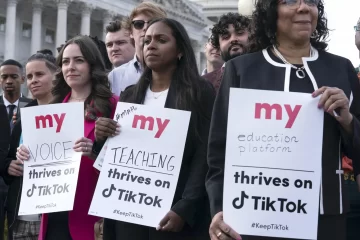In a world where media and technology have allowed elections to shed a bright light onto candidates’ personal lives, business dealings, and past career mistakes, when and how should we distinguish between unproven allegations that could have an undemocratic impact and valuable information that needs to be shared with voters?
On the day of the 2020 election, this question carries more importance than ever before. Trump’s camp is vigorously accusing mainstream media of censorship because of their reluctance to push the Hunter Biden story.
Hunter Biden’s laptop and what it could say about Joe Biden
What we know for certain is that a computer repairman in Delaware found emails on Hunter Biden’s alleged laptop, revealing connections between Hunter Biden’s Ukrainian business partner and Joe Biden, and plausible involvement of the latter in financial dealings with a Chinese businessman.
We also know that the emails circulating now are screenshots of the original ones, and therefore the flash drive of the computer is necessary to check the authenticity of those exchanges. Without the flash drive there is no way to verify the source of the screenshots.
Worth noting is that the FBI has not pursued an investigation, as no crimes are believed to have been committed. There are no actual incriminating elements in the emails, though the most obvious conclusion that can be drawn from them is that Hunter Biden was capitalising on his father’s name and position in his business activities.
Questionable sources in the New York Post story and the reality of voter manipulation through disinformation
The claim that the story has been subject to media censorship draws strength from the fact that it was initially supposed to be published by the Wall Street Journal, but the story was paused.
Trump advisors had been working to get a testimony from Tony Bubolinksy, a former business partner of Hunter Biden, who accused Joe Biden of being involved. They are looking for emails made to the Journal since early October, but Rudy Giuliani, Trump’s personal lawyer, took the initiative to go to the New York Post with evidence from the broken computer in Delaware.
This is when the Wall Street Journal questioned the source and legitimacy of the story and halted the writing of the article. This decision fuels the argument that the mainstream media has some sort of anti-Trump consensus. Yet, as a reputable news source the Journal had clear incentives to limit the spread of disinformation.
When news emerged that Twitter blocked the New York Post’s account after the story was published, Ted Cruz’s aggressive questioning of Twitter CEO Jack Dorsey seems justified: “Who the hell elected you and put you in charge of what the media are allowed to report and what the American people are allowed to hear?” A question to which Dorsey responded to with an admission that blocking the Post account was the wrong thing to do; an act that had censorship written all over it.
Dorsey continued by arguing that if the screenshots published by the Post had been verified information, Twitter would not have prevented the publication. Accordingly, this highlights a question inherent to the media in general, is information that hasn’t been proven to be true still worthy of news coverage?
Answering this question requires the examination of a fundamental issue unveiled by this story: that in a country as politically divided as the United States, now more than ever, information is never just taken as such. Sadly, they are so used to being fed opinions and beliefs that there is no time and no place in today’s media frenzy for words like ‘allegations’, and ‘maybe’, and ‘here is a piece of information, take it as it is, there is no proof’.
Is getting Trump out of office costing liberal media its credibility?
Even if the sources are questionable, the American people should have access to information about possible evidence of a Democratic presidential candidate meeting with his son’s business partner. Although there is no crime, the ordeal does say something about Joe Biden.
But in the Trump era, the consensus among liberal media is that information that is potentially false should not be given the power to be used maliciously and limit the chances of getting Trump out of office. But how many fundamental values can be put aside on the behalf of getting Trump out without liberal media losing all credibility?
Censorship of the Hunter-Biden scandal marks a clear shift from the media coverage of Democratic candidates during previous election cycles. In 2016, the New York Times had no problem reporting the news of Hillary Clinton’s emails, perhaps because in 2016, Trump’s presidency was not seen as a probably election outcome..
On the 28th of October 2016, it was revealed that the FBI had recovered a new batch of Hillary Clinton’s emails leading to former FBI director James Comey reopening an investigation into Clinton’s wrongdoings which had concluded in July. This was 11 days before the election, and the information the FBI had in its possession had not been assessed or vetted, but the media were still all over the story.
In an election as tumultuous as the 2016 one, this was the ultimate scandal and the Democrats have argued that such revelation so close to the final vote could have been the reason for Clinton’s loss. If Hunter Biden’s story had been about Trump and his son, it’s not a stretch to think the mainstream media would not have hesitated to publish it, questionable sources or not. But in 2020 too much is at stake for the liberal media to go after a Democratic candidate.
Media bias and disinformation as the mark of the Trump presidency
In the Trump years media bias has only deepened. This partisanship is a consequence of Trump’s divisive presidency and it is worrying. But there is also a conservative media anti-leftist bias. This state of things shouldn’t come as a surprise under a president who tweets more than he reads briefings.
American media should be more impartial, but blurting out any story Rudy Giuliani decides to tell with no verification whatsoever doesn’t seem like a solution either. Media outlets shouldn’t be as politicised, and readers should not expect journalists to feed them political opinions. These issues have been of growing concern since the accelerated rise of social media, but Trump’s presidency has changed the playing field, and the further we go down that path, the longer it’ll take to find a way back.


